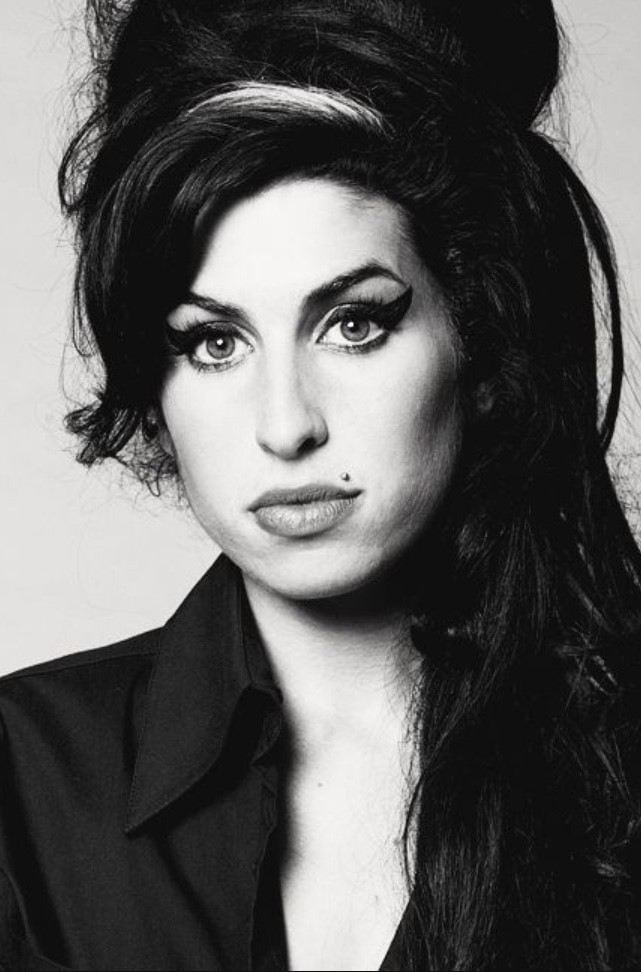Amy Winehouse’s sophomore album, Back to black, is a rare breed of work. From its defiant, hellraising opening single: Rehab to the final few chords of Sam Cooke’s ska standard Cupid, it it is blatantly obvious that immense creativity flourishes under immense pain. A distinct break from her neo-jazz 2003 debut Frank, it has all the hallmarks of a new classic. It documents wildly mature themes such as addiction, depression and heartbreak; something desperately oxymoronic considering that the writer is a 20-something year old woman. At the time of writing the album, it is important to note that Winehouse had just finished a turbulent relationship with her partner, Blake Fielder-Civil and what ensued was a deeply prophetic album, full of old school sixties flourishes, courtesy of her new producer Mark Ronson. Sadly, it would be her last album, as Winehouse tragically died in 2011 following alcohol poisoning.

The album opens with ‘Rehab’, the lead single is an uptempo, hellraising anthem to knowing it all and resisting help. With lines such as gobsmacking as ‘I aint got the time, and if my daddy thinks im fine’, it was sure to be a hit. It climbed to number 9 on the billboard hot 100 and cemented her as one of britain’s flagship vocalists. ‘You Know I’m No Good’ is the second single and it follows this defiant tone set by rehab. As Winehouse sings about cheating on her boyfriend the listener gains a glimpse of her self destructive tendencies with lines such as “I cried for you on the kitchen floor”. “Just Friends” paints more dark and sinister portrayal of her doomed relationship, as she sings about her inability to communicate with her lover, as one of them is always in a belligerent, drunk state.
This leads to ‘Back To Black’. Perhaps the most famous Winehouse song; it documents the ending of an intense relationship, as her partner left her for an old flame, winehouse fell back into old ways such as heavy binge drinking and depression. The song is full of reverb on the guitar riffs as well as a bleak piano score. It includes heart-wrenching lines such as “you go back to her, and i go back to black”, a sure prophesy of what was to come. ‘Love Is a Losing Game’ is another hugely notable track. The ballad which sounds like a song straight from the sixties, is short but intense record. Its painfully melancholic melody really shows the pain that the songstress feels and you can hear the sadness within her voice. It is very hard to imagine that such a mature, timeless classic was written by a young 23 year old girl from Camden. Tears Dry On Their Own’ follows and samples Marvin Gaye’s and Diana Ross’s 1970’s hit, ‘Ain’t no mountain high enough’, and so begins to draw the album to a close. The song is rather more uplifting than its predecessors, as she finally gains some closure singing “I don’t know why i got so attached”. ’Addicted’ is a weed-clouded, ska inspired ode to cannabis. She complains throughout the song as her best friends boyfriend smokes all her weed thus she has to “call the green man”. One could be forgiven for thinking that this song is slightly obscure and out of place on an album of such a calibre. The deluxe edition includes five covers of various ska classics. Winehouse expertly covers the Specials ‘Hey Little Rich Girl’ and ‘You’re wondering now’, employing her utterly unique vocals to create a fantastic tribute to the two-tone scene.
To conclude, Back to Black is a phenomenal album. Rarely do stars reveal so much of their personal troubles in their music. Perhaps, if the album was never made, she may still be with us today, as with its immense commercial success, it brought unprecedented fame and attention to an already vulnerable girl.
Sam Teesdale. Upper Sixth.
